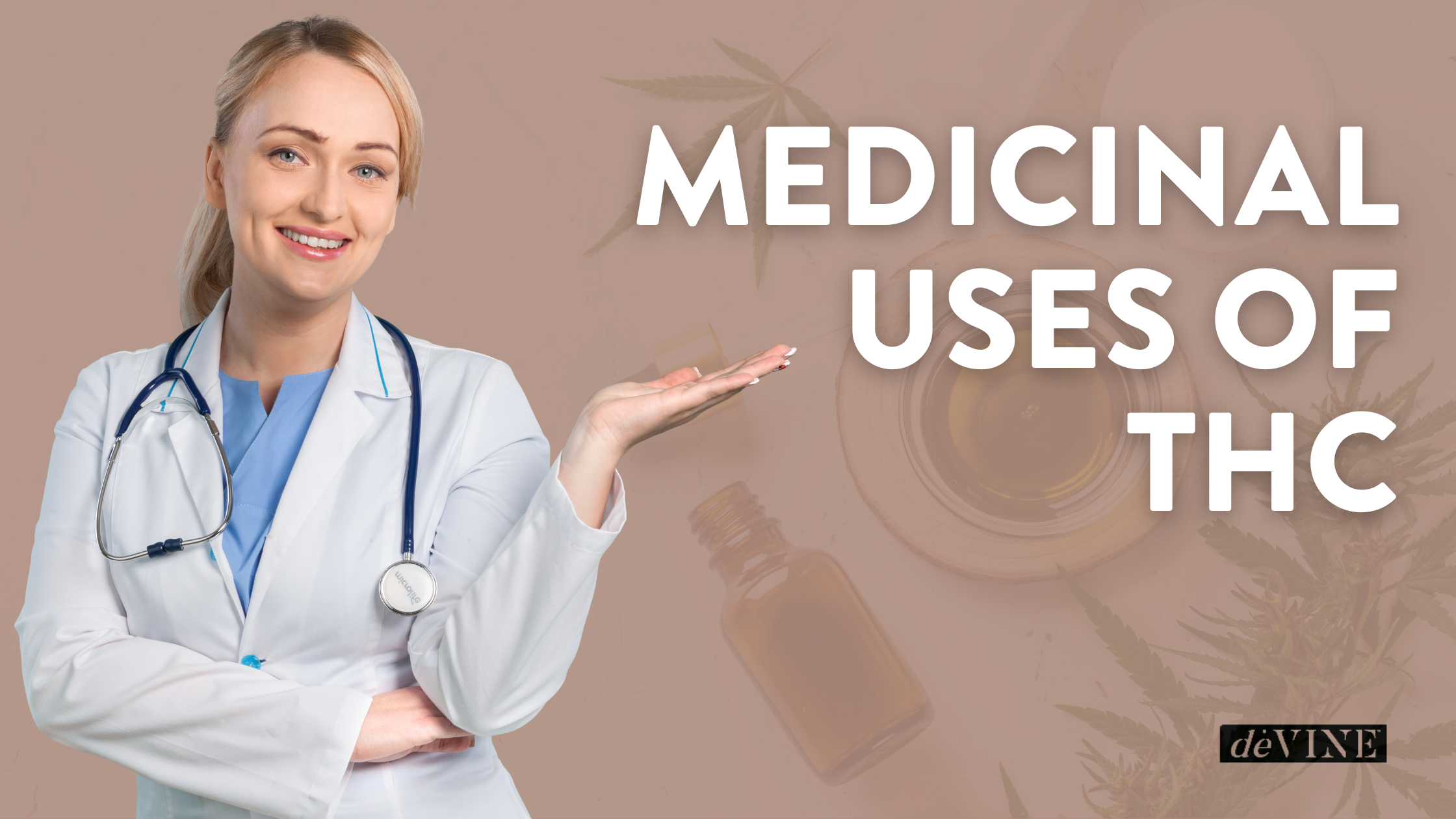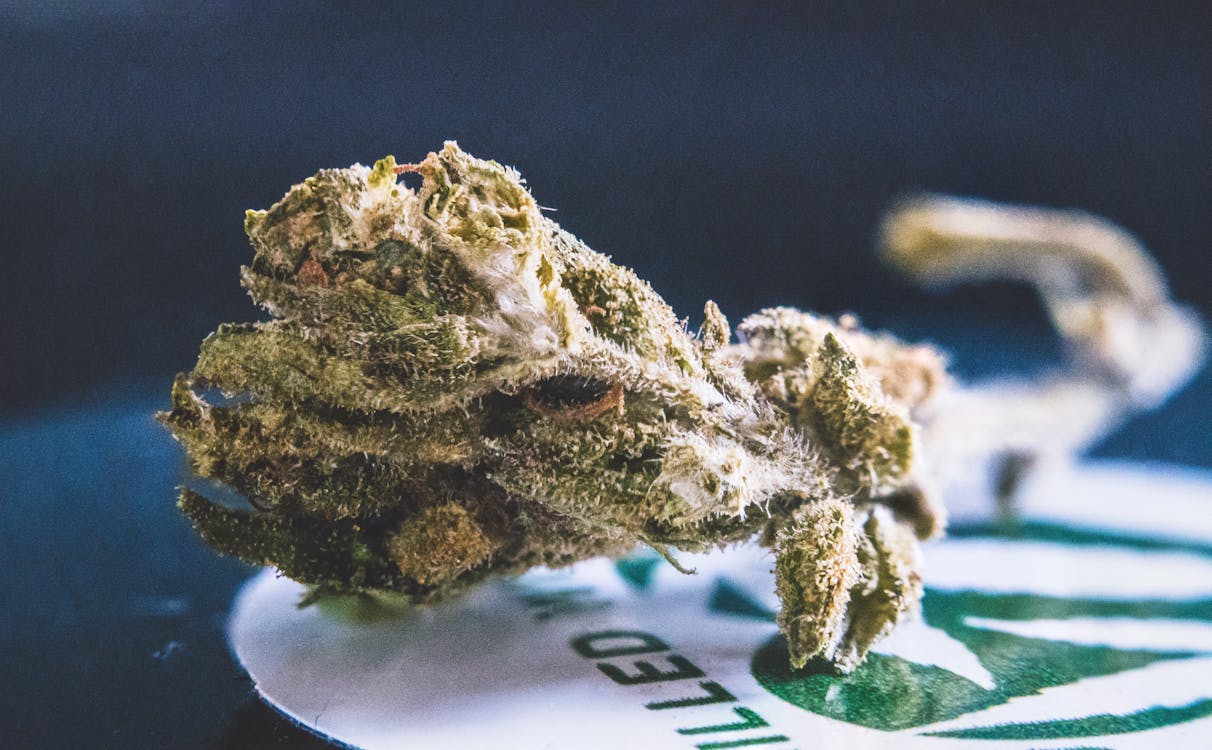As more individuals become aware of its potential advantages and fewer risks, marijuana has grown in popularity in the United States for non-medical usage.
THC is a crucial component of marijuana and is what gives the plant its euphoric properties. The relationship between THC and depression and whether it can have a depressing effect on the body are still up for debate, despite the fact that it is well known for its euphoric effects.
History of THC
THC's history begins in ancient China, when cannabis was used for a variety of purposes, including food, clothing, and medicine. Cannabis in the non-psychoactive form known as hemp moved subsequently to Europe and the Americas, where it was used for many of the same purposes.
Hemp became an important crop in the United States throughout the 1600s, used for everything from textiles to money. However, as its use for medicinal and recreational purposes spread in the 1930s and 1940s, concerns about its legality and safety arose.
Despite much received criticism, researchers persisted in studying the effects of cannabis, eventually leading to the discovery of THC in the 60s. Extensive research has since been performed to investigate the possible medical benefits of THC, resulting in the legalization of both medical and recreational marijuana in a number of states across the US.
As our knowledge of the effects of THC and cannabis as a whole continues to advance, scientists and researchers are finding new applications for this venerable plant.
How Does THC Work?
THC, also known as Tetrahydrocannabinol, is the chemical substance that gives cannabis the characteristic "high" feeling. THC enters your circulation when you smoke, vape, or consume marijuana and travels to your brain, where it attaches to receptors that have an impact on several bodily processes.
Your brain's memory, pleasure, coordination, and time perception centers all contain high concentrations of THC receptors. THC can impact your cognitive functions and even change how you perceive time when it hits these receptors.
While THC can cause feelings of euphoria and pleasure by generating dopamine to be released in the brain, it can also impair your ability to process information and establish new memories, particularly in the hippocampus.
Medicinal Uses of THC

THC has been used in a variety of medical applications. In fact, the FDA has approved two synthetic THC formulations for particular situations.
The first is Nabilone (Cesamet), which is licensed to treat chemotherapy-induced nausea and vomiting. Dronabinol (Marinol, Syndros) is approved to promote appetite in persons suffering from AIDS or anorexia, as well as to treat chemotherapy-induced nausea and vomiting.
Aside from those permitted applications, THC is frequently used to treat pain, muscle stiffness, glaucoma, sleeplessness, loss of appetite, and nausea. THC is also being studied for its ability to treat various disorders such as obstructive sleep apnea, fibromyalgia, and chronic neuropathic pain.
What THC Products & Forms Are Available?
Although people frequently identify THC with smoking marijuana, it is actually available in a wide range of goods and forms, each with its own advantages and disadvantages.
The most popular method of THC ingestion is through flowers or buds. You can smoke, vape, or prepare edibles with dried cannabis flowers or buds. Cannabis aficionados frequently choose this form of THC because it is the most pure and least processed version available.
Food items including candies, chocolates, baked goods, and beverages can all contain THC. Because of its discretion, usability, and persistent effects, edibles are widely used. But with edibles, it's important to exercise caution because the effects can take up to two hours to manifest and the dosage can be tricky to estimate.
Concentrates are another popular option. The essential oils from the plant are extracted to create concentrated forms of THC. They can be found in many different forms, including as hash, shatter, wax, and oil. The process of dabbing, which includes heating a small quantity of the concentrate and inhaling the vapor, is another way to consume concentrates. Concentrates are advised for seasoned cannabis users due to their high strength.
THC tinctures are liquid extracts that are often administered sublingually using a dropper. You can feel the effects of THC tinctures in 15 to 45 minutes and they are a discreet and convenient way to consume it. They are perfect for those who use medical marijuana because they also deliver precise dosage.
To treat localized pain, inflammation, and other conditions, THC-infused creams, balms, and lotions can be administered to the skin. Topicals are a fantastic alternative for folks who want to use cannabis for its medical advantages without getting high because they do not create the normal psychoactive effects associated with THC.
How Does THC Differ to CBD?
CBD and THC are both cannabinoids, chemical compounds found in the cannabis plant. Despite their similar chemical structures, they have distinct effects on the human body. As previously mentioned, THC is known for its psychoactive properties, responsible for the characteristic "high" experienced by recreational cannabis users.
In contrast, CBD is non-psychoactive, meaning it doesn't produce any mind-altering effects. This fundamental difference influences how these cannabinoids interact with our body's endocannabinoid system, which helps regulate various physiological processes.
While CBD and THC can be ingested independently, their collaboration often results in the so-called "entourage effect." This harmonious interplay enables CBD to temper some of THC's less favorable consequences, including anxiety and paranoia. In doing so, CBD serves as a stabilizing force, yielding a more pleasant experience for the consumer.
Both CBD and THC are celebrated for their potential therapeutic integrity, yet they excel in distinct domains. THC is frequently utilized for alleviating pain, stimulating appetite, and facilitating sleep. Whilst, CBD has gained interest for its capacity to address a range of conditions, such as anxiety, inflammation, epilepsy, and even certain symptoms of neurodegenerative disorders.
What is a Depressant?
Depressants are a large class of medications that make you feel like you're slowing down and relaxing; they often require a doctor's prescription. There are two primary sorts, which come in various forms as pills, liquids, and capsules: barbiturates, which were popular a long time ago, and newer ones known as benzodiazepines, such as Valium and Xanax.
Depressants function by slowing the brain and nerves, causing you to feel more relaxed and tranquil. They are frequently used to treat anxiety, depression, and sleep issues. Many individuals tout the advantages of antidepressants, but if you use them for an extended period of time or in excess, you can get addicted. To achieve the same effect, you will need to increase the dosage. People also have concerns which include feeling disoriented and having difficulty speaking or breathing if they take too much.
Depressants can be helpful if you use them correctly, briefly and with a doctor's guidance. They can make you feel less stressed and anxious and help you sleep better.
Cannabis and Depression
Depression and anxiety are among the most incapacitating health conditions that impact millions of individuals across the globe. To cope with these challenges, certain individuals explore the use of cannabis products that contain either THC, CBD, or a blend of both.

Is THC A Depressant?
There is ongoing debate about whether THC is a depressant. THC operates differently than typical depressants. Upon consumption, it connects with cannabinoid receptors (CB1 and CB2) situated in the brain and throughout the body. These receptors belong to the endocannabinoid system, which regulates various physiological processes, including mood, pain, and appetite.
THC has the ability to generate some depressant-like effects, such as tranquilly and tiredness, but it also produces effects that are not normally associated with depressants. THC, for example, is known to cause euphoria, heightened sensory perception, and changed thinking patterns, all of which are more common in stimulants and hallucinogens. As a result of THC's various effects, classifying marijuana as a depressant is challenging.
Does THC Help With Depression?
A common question people ask is whether THC is a viable option for managing depression. While the Food and Drug Administration (FDA) has yet to approve cannabis for treating depression, initial research shows that cannabis and THC may potentially provide relief for some people but not others.
For instance, in 2022, a group of researchers conducted a study at a medical cannabis clinic in Canada. Over 7,000 people with anxiety and depression sought treatment and filled out health questionnaires. The study found that many participants experienced significant improvements in their symptoms.
Similarly, self-reported studies imply that cannabis may aid in the treatment of postpartum depression for new mothers. More scientific research, however, is required to completely understand the effects of THC, CBD, and cannabis on depression.
THC as a Sedative
THC can exhibit sedative effects under certain circumstances. Sedatives are substances that promote calmness, relaxation, and in some cases, induce sleep. It's important to understand that THC's sedative properties are influenced by various factors, including dosage, individual tolerance, and the presence of other compounds in cannabis.
Cannabis strains with a higher THC content tend to produce more sedative effects, especially when consumed in larger quantities. Low doses of THC might promote relaxation without causing drowsiness, while higher doses can lead to feelings of sleepiness and lethargy.
Apart from THC, the existence of other cannabinoids and terpenes in cannabis plays a crucial role in its calming effects. Studies indicate that compounds like CBD and terpenes such as myrcene and linalool contribute to the relaxing and sedative qualities of certain cannabis strains. This suggests that the overall sedative impact of cannabis may be a result of the collaborative interaction between THC and other chemicals present in the plant.
THC's Side Effects
The effects of THC on the human body and mind are not straightforward and can vary widely depending on the individual. THC consumption can lead to several outcomes, including:
Feeling Happy: THC can make you feel good by bringing about feelings of joy, relaxation, and overall well-being.
Altered Perception: THC can affect the way you perceive things by intensifying your senses or distorting your sense of time. Sometimes it may even cause mild hallucinations.
Increased Appetite: THC is known to increase your appetite, also known as "the munchies," which can make you crave food.
Cognitive Impairment: THC can make it harder to remember things, concentrate, and make decisions in the short term.
Anxiety and Paranoia: In some cases, THC can cause feelings of anxiety, paranoia, or panic in some individuals.
The intensity and duration of these effects depend on factors such as dosage, method of consumption, individual tolerance, and the presence of other compounds in cannabis. Additionally, genetics, metabolism, and previous experiences with cannabis can influence how THC affects a person.
It's important to remember that everyone's experience with THC is unique, and what may be enjoyable for one person could be overwhelming or unpleasant for another. To minimize potential adverse effects, it is recommended to start with a low dose and gradually increase it, paying close attention to how your body and mind respond. Always consult a healthcare professional if you have concerns or questions about using cannabis and THC.
Potential Risks and Precautions
While there is potential for THC to be utilized as a treatment for depression, it is crucial to consider the potential risks and precautions associated with its use. As with any substance, there are possible side effects, interactions, and contraindications that may occur.
Mental Health Concerns: THC can sometimes worsen pre-existing mental health problems or provoke new symptoms, particularly in those predisposed to psychiatric conditions. If you have a history of mental health issues, exercise caution and seek a healthcare professional's advice before using THC for depression.
Drug Interactions: Combining THC with other medications might result in adverse effects or reduced efficacy of the other drugs. Discuss potential interactions with a healthcare professional before using THC alongside other medications.
Age Restrictions: Adolescents and young adults should be cautious when using THC, as research suggests that early and frequent use of cannabis may lead to negative cognitive and psychological consequences, including an increased risk of developing mental health disorders.
Pregnancy and Breastfeeding: THC has the ability to cross the placental barrier and enter breast milk, influencing fetal development and baby well-being. Pregnant or breastfeeding women should avoid consuming THC-containing products.
Impaired Motor Skills: THC may hinder motor skills and reaction times, raising the likelihood of accidents and injuries. Avoid driving or operating heavy machinery while under the influence of THC.

What Does The Future Hold For THC and Depression?
As research on THC and its potential therapeutic applications continues to evolve, there is hope that a better understanding of the relationship between THC and depression will emerge. The future of THC in relation to depression could include new treatment options, refined dosages, and novel delivery methods.
New Treatment Options: If research continues to show that THC has potential benefits in the treatment of depression, it could pave the way for new therapy alternatives. In the future, THC-based solutions may be developed particularly to address the symptoms of depression, providing patients with an alternative or complementary treatment to present therapies.
Improved Dosages: Researchers may be able to discover ideal dosages and cannabinoid ratios to provide the most effective alleviation from depressive symptoms as their understanding of THC's effects on the body and mind grows. This could lead to more personalized and precise options for people in need.
Combining THC with Other Compounds: According to research on the entourage effect, combining THC with other cannabinoids and terpenes may improve therapeutic benefits. Cannabis compositions that combine THC with additional components may be developed in the future to maximize its potential benefits for depression.
Deeper Understanding of Individual Differences: Because genetic and environmental factors might alter an individual's sensitivity to THC, future study may provide light on how these factors contribute to THC's effectiveness with depression. This may result in more personalized treatment approaches based on a person's particular genetic composition and circumstances.
Overcoming Stigma and Legal Barriers: As public view of cannabis and THC shifts, more states and countries may embrace progressive rules governing its medical usage. As a result, THC as a possible therapy for depression may become more accessible and less stigmatized.
Final Thoughts
The link between THC and sadness is not straightforward. THC and depressants share some effects, such as assisting people in relaxing, yet they also have significant distinctions. THC has produced inconsistent outcomes in research investigations, making it difficult to identify it as a depressant.
Factors such as the amount of THC, the type of cannabis, and a person's individual background, can affect how THC influences depression. For some, it may worsen their mood, while others might feel better temporarily.
If you're considering taking THC or cannabis products, talk to your doctor first, especially if you have a history of depression. More research is needed to understand how THC impacts mental health, but there is hope that we may uncover clearer answers and innovative strategies to treat depression.
Contact us
We want to express our heartfelt gratitude for taking the time to explore our blog. Your engagement means the world to us! If you're eager to dive deeper into the world of premium cannabis, CBD, and alternative health products, we invite you to visit our homepage at Devine Boston.
For an immersive experience and access to our curated selection of exceptional products, you can also stop by our store at 619 E Broadway, Boston, MA 02127, United States. Our dedicated team is ready to assist you in finding the perfect choices to meet your needs and preferences.
Should you have any questions, require assistance, or simply want to connect with us, please feel free to reach out via our contact page at Devine Boston Contact. We're here to provide you with the highest level of service and expertise. Thank you once again for being a part of the Devine Boston community, and we look forward to serving you soon!

